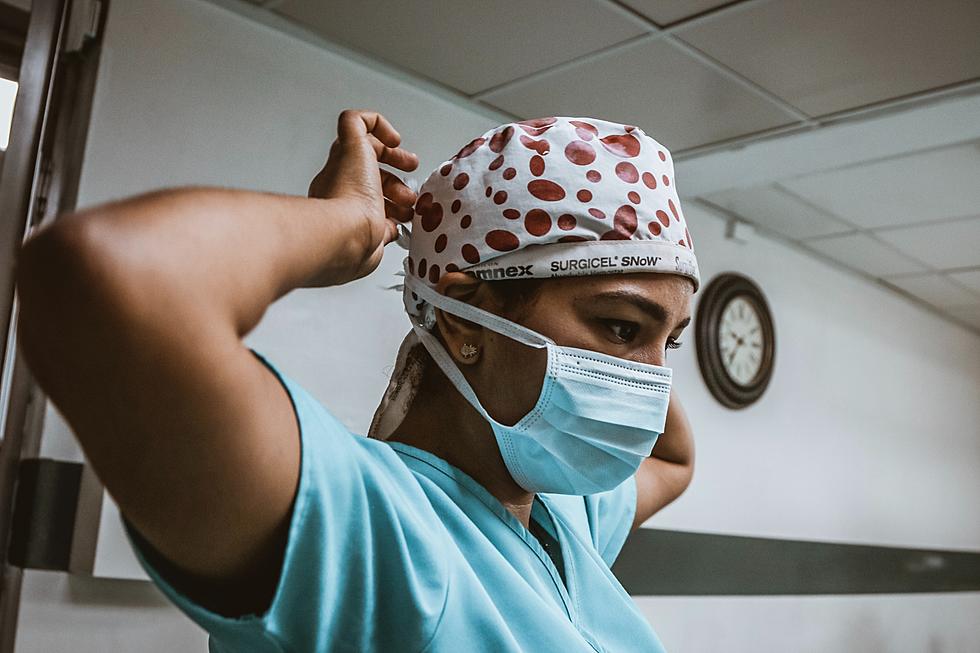
DNP in Indiana: Advancing Nursing Practice for Better Healthcare
This content was produced in partnership with Archer Education.
The Doctor of Nursing Practice (DNP) is the highest degree you can get as a nurse, and it’s an essential educational step to improve our healthcare.
As the demand for highly skilled nursing professionals increases, there are more and more DNP degree programs open to Indiana residents as a means of elevating nursing practice and improving healthcare outcomes.
So, if you want to learn more about the DNP and how it can improve healthcare in a state like Indiana, we invite you to keep reading this article.
Indiana: A State in Need of Better Healthcare
According to Senator Charbonneau, the state of Indiana ranks 45th in public health funding. To help the state offer a better health system, two-thirds of Indiana counties have opted in to $225M of state public health funding.
This funding is meant to help create more efficient prevention against diseases. It can help with infant mortality, obesity, and smoking, which are the fields in which Indiana is at its worst. It's also a way to grant access to healthcare more efficiently.
However, to improve people’s health, it’s also essential to have more educated professionals who can assist patients. DNP programs can help make nurses better at handling patients. In some cases, bypassing the need for a doctor. This means cutting costs without sacrificing the quality of the care.
Why DNP Program Accessibility Matters
1) Enhancing Clinical Expertise
As a DNP nurse, you’re not a simple assistant but a highly trained and skilled health professional. This means that, unlike a regular nurse, you have the opportunity to form a medical opinion and show your clinical expertise.
Of course, this doesn’t make you a physician, and you can’t do what a doctor does. Nonetheless, on a more modest scale, you can assist patients with minor afflictions. It’s essential given the costs of healthcare nowadays. Moreover, since a nurse with a DNP degree can help with some patients, it frees up time for the physician to attend to more challenging health issues.
2) Bridging the Gap Between Research and Practice
There’s often a discrepancy between theory and practice in healthcare. That’s because, between the time you enter a nursing school, and the time you start practicing in real conditions, years go by. Often, we can see practitioners treating patients with outdated techniques. DNP programs can help keep medical staff up to date.
Moreover, this kind of program fosters a culture of evidence-based care. This approach provides the best treatment options available and improves the outcome.
3) Leadership Development and Advocacy
When a nurse gets a DNP degree, they can also become leaders in the medical community. With the knowledge gained in advocacy, the nurse can influence policy, drive new initiatives, and help shape a better practice. So, the DNP graduate’s role is pivotal to ensure patients’ rights are respected with higher standards and easier access to healthcare.
4) Impact on Rural and Underserved Communities
Indiana is the eighth-largest farming state in the nation. Its agriculture represents approximately $35.1 billion in the state’s economy. This means that this Midwestern state is mainly rural, and as you may know, in such types of states, people struggle to access healthcare. This situation leads to unique challenges. DNP-prepared nurses have the training to help such underserved communities.
When the nearest hospital is miles away, nurses become vital to rural people. They can treat and assess the conditions patients may be suffering from better. If, after a DNP, you decide to become a nurse practitioner, you can also choose to tend to the elderly, who have a tendency not to treat their conditions. It’s essential for diseases like cancer, which are often detected too late, and Indiana has many cancer-related deaths, according to CDC.
5) Covering a Wide Range of Fields
The DNP degree can lead to direct patient care, and it means treating patients in different fields, depending on the role you gain afterward. If you become a nurse midwife (CNM), you’ll focus on services during and after childbirth, with counseling throughout infancy.
As a nurse anesthetist (CRNA), you’ll have a hospital position working hand-in-hand with a team to provide anesthesia services. Finally, nurse practitioners (NP) work autonomously. They have the possibility to specialize in several fields. These fields include gerontology, pediatric care, psychiatry, women’s health, and neonatal care.
More Knowledge for Better Healthcare
DNP programs are critical in advancing healthcare, especially in Indiana. A state where so many people don’t have proper access to it. As a DNP graduate, your career opportunities are improved, and you’ll be equipped to assist those in need.
The DNP program helps nurses develop their clinical knowledge, leadership, and informatics skills. More importantly, it teaches an evidence-based approach. Informatic skills have become vital in healthcare, especially with the recent cyberattacks in Indiana and throughout US medical facilities.
More From WKDQ-FM






